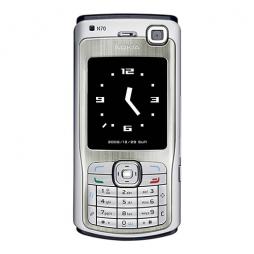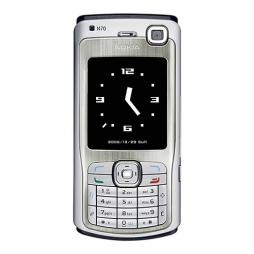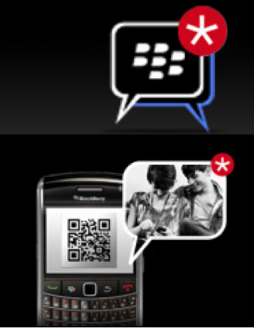RIM
Posted by AnneryanHeatwole on Aug 01, 2011
The Mobile Minute is back with the latest mobile news. What's happening today? Nielsen Wire looks at smartphone penetration in Asia, RIM lays off 11% of its worldwide workforce, CGAP investigates how network operators can incorporate mobile financial services into their operations, [x]Cube Labs turns Android's history into an infographic, and Read Write Web looks into the latest developments in the use of near field communication technology for mobile payments.
- Curious about the smartphone market in Asia? Nielsen Wire looks at the rapid growth of smartphones in Asia. Although current smartphone penetration in the region is less than 20%, a Nielsen survey of consumers revealed that nearly half of respondents plan to buy a smartphone within the next year. Nielsen Wire investigates what the anticipated increase in smartphone ownership will mean for how people access the Internet, how network operators will price their data plans, and how mobile advertising will adjust to a new market.
- Wired reports that RIM (the makers of BlackBerry devices) announced on July 25th their plans to lay off 2000 employees, roughly 11% of its worldwide workforce. The move comes as RIM has lost market share to the growing popularity of newer operating systems like Apple's iOS and Google's Android.
- CGAP's "How to Run with Mobile Money and Not Fall" article examines how mobile network operators can incorporate mobile financial services into their current business models. Some of the advice for successfully incorporating mobile money services includes using multiple distribution methods (such as both on-phone purchases and traditional street airtime sellers) and getting support from/sharing knowledge among multiple departments.
- If you like charts and graphs, check out this history of the Android operating system. Covering everything from its founding date (2003), to the Google buyout (2005), to the launch of the first Android device (2008), to present day releases, the infographic maps out each update in Android's development.
- Near field communication (NFC) technology allows smartphone users to transmit information to nearby contacts. Read Write Web recently investigated some of the new developments in the NFC field for turning smartphones into credit cards. The first article looks at how the company Isis partnered with four major American credit card companies (Visa, MasterCard, American Express, and Discover) to develop wireless payments. The second article looks at the Jumio payment company's launch of Netswipe, which "turns any webcam into a credit card reader, both on the desktop and on mobile."
[Mobile Minute Disclaimer: The Mobile Minute is a quick round-up of interesting stories that have come across our RSS and Twitter feeds to keep you informed of the rapid pace of innovation. Read them and enjoy them, but know that we have not deeply investigated these news items. For more in-depth information about the ever-growing field of mobile tech for social change, check out our blog posts, white papers and research, how-tos, and case studies.
Image courtesy Flickr user QiFei
Posted by AnneryanHeatwole on Oct 13, 2010
Today's Mobile Minute brings you coverage on mobile learning in South Africa, Egypt's pre-election SMS restrictions, Motorola's launch of dual SIM card handsets in India, a new mobile sensing tool, and India's extension of its deadline for banning RIM's BlackBerry services.
Posted by AnneryanHeatwole on Aug 12, 2010
Today's Mobile Minute covers the unfolding BBM security controversy, Ushahidi's new Crowdmap online platform, a roundup of mobile apps for the disabled, a break down of what mobile ownership numbers actually mean, and the take-away on mobile remittances from the Tech@State conference.
Posted by AnneryanHeatwole on Jul 30, 2010
[Update below] On the morning of July 29, Reporters Without Borders reported that several citizens of the United Arab Emirates has been arrested for allegedly using BlackBerry Messenger to coordinate a protest against the high price of gasoline. This news comes on the heels of several countries’ working to block or severely limit the use of BlackBerry Messenger in their respective countries. There have also been reports on RIM setting up a server in China under Chinese pressure, even though MobileActive.org could not directly verify these reports.
On July 25th, the United Arab Emirate’s Telecommunications Regulatory Authority said that they believed BlackBerrys could be used in a way that compromised national security, in April of 2010 Bahrain issued a ban against using the chat feature to share local news, and now India has joined the ranks of countries requesting access to data and information sent over BBM.
Reporters Without Borders has been covering the controversy in the Middle East. Regarding the arrests in the U.A.E., the organization reports:
The authorities were able to trace the organizer, known as “Saud,” because he included his BlackBerry PIN in a BBM message he sent calling for the protest. They held Saud for a week and used his phone to trace those he had been messaging. Accused of inciting opposition to the government, he has lost his job. At least five other members of the group have reportedly been summoned by the police or are still being sought.
| Blackberry Messenger: Hand Us Encryption Code Or Face Ban data sheet 12197 Views |
| Countries: |
United Arab Emirates
|


